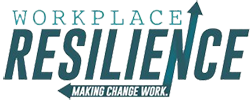 Many years ago, I was paired with a woman to work on a project on a volunteer board. We split up the project responsibilities and agreed to speak again in 5 days to review our progress. Within those 5 days, she would send me the completed piece via email so I could review her share before our conversation.
Many years ago, I was paired with a woman to work on a project on a volunteer board. We split up the project responsibilities and agreed to speak again in 5 days to review our progress. Within those 5 days, she would send me the completed piece via email so I could review her share before our conversation.
5 days passed with no email in sight. I emailed her on the 5th day to inquire when I would receive her part of the project but heard nothing. On the 6th day, I called on our agreed upon time. She shared that she hadn’t completed it. There was no explanation. In fact, she was a bit indignant that I was reaching out to inquire at all.
I had a strong emotional reaction to this situation. I felt let down and disappointed in my partner and began to form some strong judgments about this woman.
After analyzing the situation, I realized that I reacted strongly because one of the most important values to me is “taking accountability”. I believe that when someone says that they are going to finish a task, it’s imperative that they follow through. In addition, if they haven’t followed through on this task, then they need to take accountability for their actions-or lack thereof.
My point to sharing this story is to help you understand how quickly I made judgments and categorized someone because of my own values and expectations. Yes, taking accountability is important, especially to a leader. However, my strong reaction got in the way of handling the situation appropriately. I don’t have to accept this lack of follow through, but I certainly have to change my reaction so I can deal with someone fairly.
If only I had asked some pointed questions, instead of making judgments, there would have been more understanding between the two of us.
Realizing that everyone has different values that drive their behavior is an important lesson to learn. A prime example of this can be seen daily by scrolling through your social media. I’m sure you have noticed that some individuals feel obligated to post political articles so that they can share their views. It appears that they are driven to help others understand why their perspective is the “right one”. They are so certain about this, that their posts can end up being attacking and sometimes cruel. Of course, you invariably see others responding, not always in the most appropriate way.
If you could take a step back, you might realize that beneath that polarizing post and emotion is a value that’s very important to them. It’s so important to them that they are struggling to understand why you would see it any differently. On your part, you are probably making some very strong judgements about the individual and some sweeping generalizations.
That’s why having a real conversation is so important. With communication, comes understanding. With understanding might come a shift in perspective. But none of this is going to happen if you don’t truly try to understand what is beneath their behavior.
And I’m pretty sure that clarifying someone’s values, that then leads to understanding, definitely is not going to happen on a Social Media political post.
All I am suggesting is that you try look at things from a different perspective. When you are triggered, recognize the value that is not being honored. Learn from this and don’t judge others so harshly in the process.



